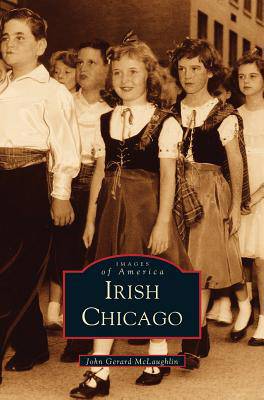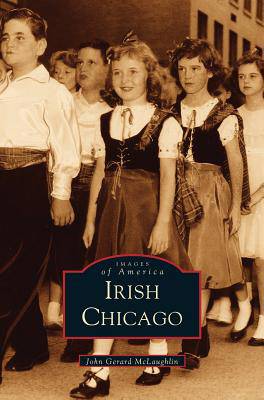
- Afhalen na 1 uur in een winkel met voorraad
- Gratis thuislevering in België vanaf € 30
- Ruim aanbod met 7 miljoen producten
- Afhalen na 1 uur in een winkel met voorraad
- Gratis thuislevering in België vanaf € 30
- Ruim aanbod met 7 miljoen producten
Zoeken
Omschrijving
The history of the Irish in Chicago goes back to the days when the city was little more than an outpost on the prairie shores of Lake Michigan. Drawn by opportunities in the growing frontier town, Irish men and women who were fleeing economic hardship and famine in Ireland were quick to make their mark on Chicago's political, religious, and economic life. The unique position of the Irish among immigrant groups-English speaking and more culturally attuned to Anglo-American institutions, yet Catholic-allowed them to flourish in occupations and social positions for which they have become known. Most notably, the Irish in Chicago have produced eight mayors and many bishops. But Irish Chicago is also the story of those who built and enlivened the city: the policemen, firemen, priests, nuns and brothers, tavern owners, educators, transit workers, musicians, and ward politicians made good, and the north, south, and west side neighborhoods and parishes they inhabited.
Specificaties
Betrokkenen
- Auteur(s):
- Uitgeverij:
Inhoud
- Aantal bladzijden:
- 130
- Taal:
- Engels
Eigenschappen
- Productcode (EAN):
- 9781531613907
- Verschijningsdatum:
- 19/02/2003
- Uitvoering:
- Hardcover
- Formaat:
- Genaaid
- Afmetingen:
- 170 mm x 244 mm
- Gewicht:
- 412 g

Alleen bij Standaard Boekhandel
+ 88 punten op je klantenkaart van Standaard Boekhandel
Beoordelingen
We publiceren alleen reviews die voldoen aan de voorwaarden voor reviews. Bekijk onze voorwaarden voor reviews.







